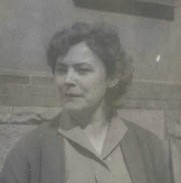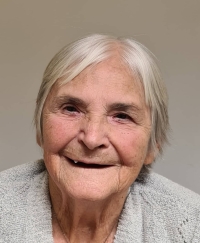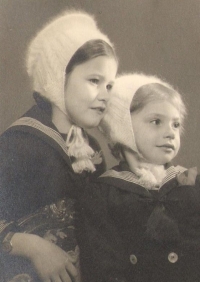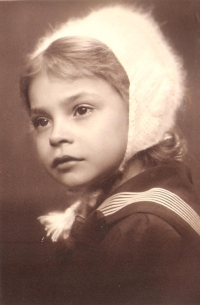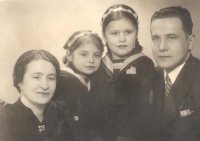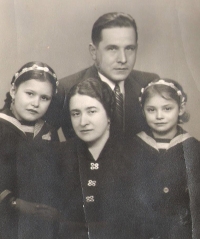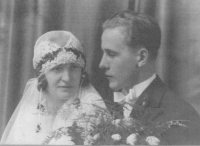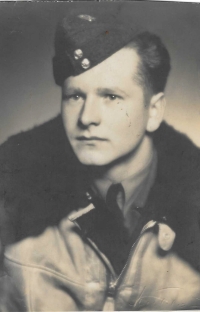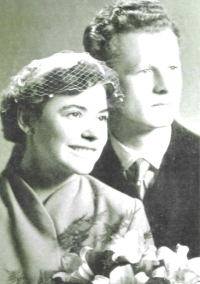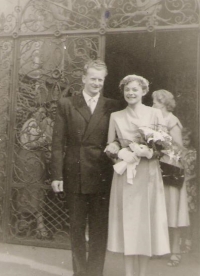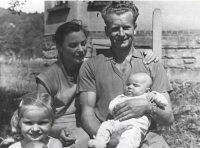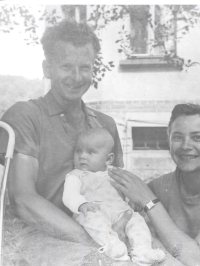The Nazis took away my father, the Communists took my husband’s freedom

Download image
Lucie Janotová, née Čurdová, was born on 16 May 1932 in Háje nad Jizerou in the Podkrkonoší region in the family of Jaroslav Čurda, a teacher. The family lived in the village of Dolní Sytová. Right after the beginning of the World War II and the declaration of the Protectorate of Bohemia and Moravia, her father joined the resistance organization Obrana národa (Defence of the Nation). Soon he became a commander of the resistance in Dolní Sytová, where they were engaged in activities against the enemy regime. However, after being denounced by a neighbour to the Gestapo in 1941, her father and then the whole group were arrested. Jaroslav Čurda was subsequently interned in Germany and executed in 1942. After the war and after studying in Mladá Boleslav, Lucie met her future husband Radislav Janota. However, even here the beginnings of the relationship were not easy. Radislav Janota, one of the first post-war Czechoslovak pilots and flying instructors, who had been taught the profession by Western pilots from the Royal Air Force (RAF), was charged with treason and sentenced to thirteen years in prison in 1950. In 1956 his sentence was revised and he was released. Immediately after his return home, he and Lucie were joined in marriage and later had two daughters together. In the following years, as the daughters of a political prisoner, i.e. an unreliable person, they faced difficulties to be admitted to university. In 2022, Lucie Janotová was living in a retirement home in Otín near Jindřichův Hradec.
